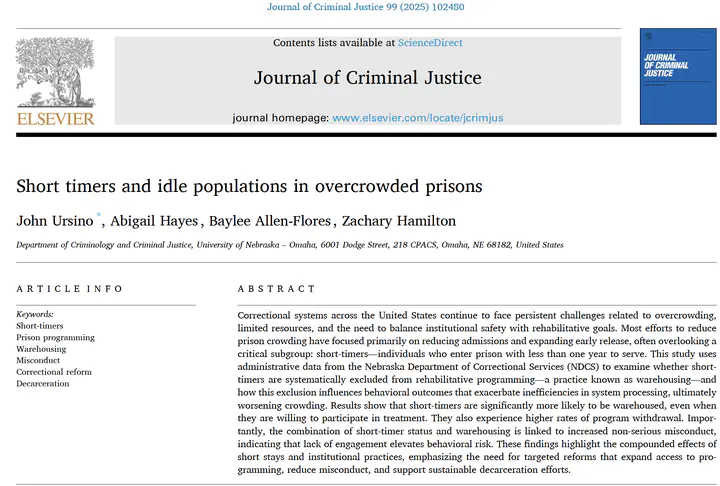Short timers and idle populations in overcrowded prisons

Abstract
Correctional systems across the United States continue to face persistent challenges related to overcrowding, limited resources, and the need to balance institutional safety with rehabilitative goals. Most efforts to reduce prison crowding have focused primarily on reducing admissions and expanding early release, often overlooking a critical subgroup: short-timers—individuals who enter prison with less than one year to serve. This study uses administrative data from the Nebraska Department of Correctional Services (NDCS) to examine whether short-timers are systematically excluded from rehabilitative programming—a practice known as warehousing—and how this exclusion influences behavioral outcomes that exacerbate inefficiencies in system processing, ultimately worsening crowding. Results show that short-timers are significantly more likely to be warehoused, even when they are willing to participate in treatment. They also experience higher rates of program withdrawal. Importantly, the combination of short-timer status and warehousing is linked to increased non-serious misconduct, indicating that lack of engagement elevates behavioral risk. These findings highlight the compounded effects of short stays and institutional practices, emphasizing the need for targeted reforms that expand access to programming, reduce misconduct, and support sustainable decarceration efforts.